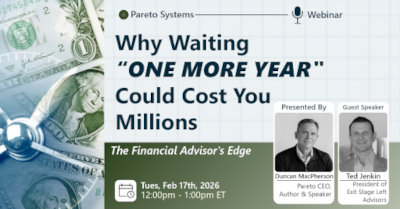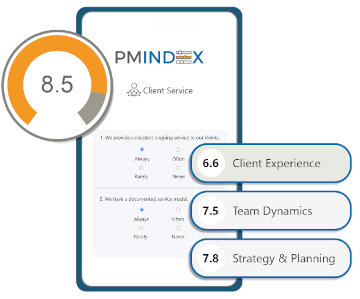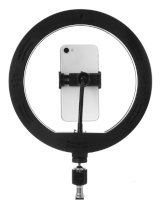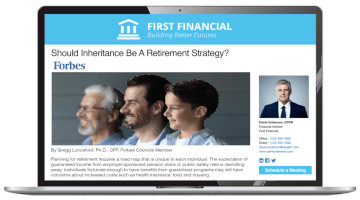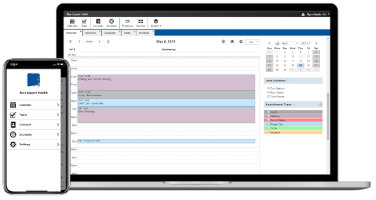The Seventh Pillar: Formalize Goals Based Planning

Do your clients understand the difference between a financial plan and financial planning? A financial plan is an essential blueprint to provide clarity on the trajectory of your relationship and the pieces of the puzzle that need to be addressed by your people, your practice and your process, but that plan can become obsolete the moment any significant change occurs in the client’s life. Ongoing financial planning, on the other hand, is the keystone to your relationship. It is the lifeblood of your fee-worthiness, primarily because it’s fluid and dynamic and all-encompassing as the client’s life progresses.
One of the most profound changes you can make is enhancing your role as a goals-based planner. I’m sure you already show interest in why financial independence matters to a client and what goals they hope to achieve in life. I’d like you to consider professionalizing it further and then embedding it into the seventh pillar of your process (Value-Added Services). You can use social proof when introducing this to a client by saying that “you are starting to have many deeper conversations with long-term clients about their evolving goals and aspirations, and that you’re getting an even clearer appreciation for what financial independence really means to a client. It’s not just about a number - it’s a means to many important ends.”
So look for cues from the client and see how they respond to this introduction. If they engage, ask them if they see the merit in kick-starting a deeper dive using your approach to formalizing goal setting. If they say yes, simply ease in with this question, “Would you say that you are today where you thought you were going to be, or where you said you were going to be five years ago? In other words, five years ago, you had a beacon set for the future - and not just financially - are you there today?”
If the conversation that ensues is meaningful, pick your spot and then segue to the next question by simply asking, “What does Nirvana really look like for you in the future? If everything falls into place, what does that look like?” It’s not uncommon for the client to open up like a flower in the sun, outlining a wish list. Be sure to capture and chronicle everything they say.
With clients that really get into it, you can go even deeper and tie them into your financial planning process. If they are engaged, simply write five W’s on the backside of the agenda you’re using for the meeting, or simply ask them to write them down on a sheet of paper if you happen to have this conversation over the phone.
Explain that you’d like to frame goals around W5 and expand by filling out What, Where, When, Why, and Who. The first question in goal setting is what are you grateful for? This may seem counterintuitive because goal setting is generally about what you want, but currently lack. However, gratitude for what we already have is a powerful force to propel us towards what we want. Aspiration is fueled by appreciation. It can be a good idea to show the image of Maslow’s hierarchy as a reminder of the things humans strive for, but it also reminds us not to take what we already have for granted. You’ll see the conversation go deeper.
Then you can invest the past and the present into the future by pivoting to the next question, “Where do you see yourself in the future?” You can either remind the client or introduce the client to the acronym FORM (Family, Occupation, Recreation, Money) and talk about the importance of getting goals out of one’s head and onto paper, or you can fuel the conversation by providing examples of other clients, family, occupation, recreation, and money goals. Be sure to write everything down because you will summarize what they said and archive it into their Personal Financial Organizer. Once they have verbalized 10 or more goals, ask them, “When specifically, do you hope to achieve those goals?” As they’re responding, you can add some commentary around the importance of cause and effect - the power of compounding incrementalism, patience and how the most enlightened clients you discuss this with are clear and at peace with expectation management, external dependencies, and other key facts of life.
The conversation can get a little heavier in the next question. “Why is all of this so important to you?” It can feel heavy because it focuses on the esteem and self-actualization in Maslow’s hierarchy. One’s sense of purpose and reason for being and how it’s as much about who we become as a person as it is about how much we earn and accumulate.
Finally, the question that starts to bridge the client’s goals and pursuits to your relationship and your value. “Who do you need to become? And who do you need to associate with to make all of this a reality?”
The lens for how important the Law of Environment is becomes more focused. Who we associate with and delegate responsibility to is crucial. The degree that we empower and not micromanage, the value we place on liberation and order that we achieve because of the professionals we engage with. The importance of aligning ourselves with people who are philosophically in sync with us, and the degree that their value is not just relevant to us today, but also in the future; all ensures that we focus on what that professional is worth rather than what they cost.
I won’t be surprised if you talk about how you learned that you had to disassociate from people who are not a good fit.
As you grow your business down to a natural capacity of ideal clients you are perfectly suited for, your relationships will strengthen your fee-worthiness, referability will increase and your level of fulfillment will intensify.
Continued Success!
Contributed by: Duncan MacPherson

